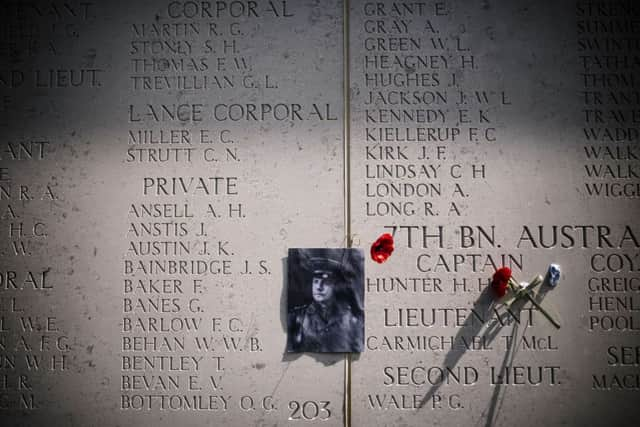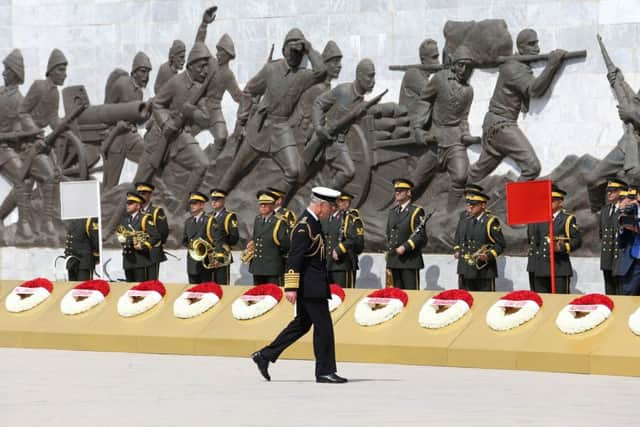Gallipoli centenary honours heroism and humanity


In nine months of bloody slaughter, about 58,000 allied soldiers – including 29,000 British and Irish soldiers and 11,000 Australians and New Zealanders – lost their lives during the operation to take the Gallipoli peninsula.
A further 87,000 Ottoman Turkish troops died fiercely defending their homeland, and at least 300,000 more on both sides were seriously wounded during the campaign.
Advertisement
Hide AdAdvertisement
Hide AdAnd in a solemn ceremony yesterday Prince Charles and Prince Harry joined heads of state and dignitaries from more than 70 countries in Turkey for a series of commemorations marking the 100th anniversary of the eve of what turned out to be one of Britain’s worst military disasters.


During the event, the Prince of Wales has paid tribute to the “heroism and humanity” of those who fought in Gallipoli.
The royals were on the flight deck of the Royal Navy’s flagship HMS Bulwark in Turkey’s Dardanelles straits, the same crucial waters that the Allies in the First World War hoped to control. At the international ceremony, Prince Charles said everyone had a “shared duty” to overcome intolerance and fight prejudice “so we can truly say we have honoured the sacrifice of all those who have fought and died here on the battlefield at Gallipoli and elsewhere”.
At the Commonwealth and Ireland service at Cape Helles, Prince Charles read an extract from John Masefield’s book Gallipoli.
Wreaths were laid by representatives including Australian prime minister Tony Abbott and New Zealand prime minister John Key.
The president of Ireland, Michael Higgins, also attended.
The idea to knock the Ottomans out of the war and open a sea route to Russia was Winston Churchill’s, but because of hopeless planning, hostile conditions and heroic defending, eight bloody months later the operation was halted, having cost 58,000 Allied lives. Some 87,000 Turks died defending their home soil.
The amphibious assault from a French and British fleet started at dawn on 25 April 1915 as wave after wave of British, Irish, French, Australian, New Zealand and Indian troops attacked heavily defended beaches.
Many were cut down before they reached the shore and the sea turned red from the blood. Although Gallipoli is synonymous with Australian and New Zealand heroism, three times as many British and Irish troops were killed as Anzacs (Australian and New Zealand Army Corps).
Advertisement
Hide AdAdvertisement
Hide AdSome descendants feel the British involvement has been overlooked by history, perhaps because it ended in failure.
The royal party met 15 descendants of veterans who were selected to join the commemorations on the beautiful peninsula and ceremonies at Commonwealth War Graves Commission sites.